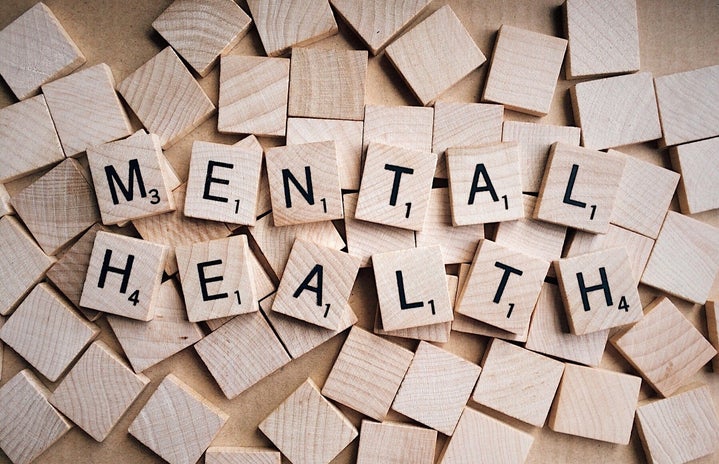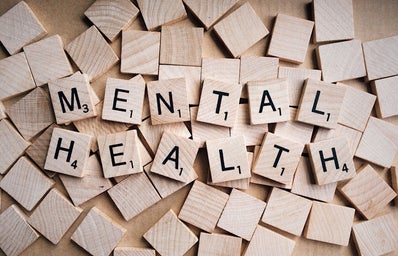I feel like I hear the words “mental health” and “self-care” so often lately. However, self-care isn’t just taking a bubble bath or going for a walk. Maintaining good mental health takes more than just saying no to plans every once in a while and setting aside some “me time.” Mental illness can’t simply be ignored. It takes work, time, commitment, and in some cases, medication. However, the stigmas surrounding therapy and mental health medication prevent a lot of people from taking advantage of these options.
My journey with therapy has been a little complicated. It took me years of struggling with anxiety and depressive episodes before I felt comfortable enough to tell my parents that I needed help. Thankfully, my parents are very supportive and wasted no time in getting me connected with a therapist. However, I had a lot of difficulty feeling comfortable opening up to her. It was nothing against her as a person or as a mental health professional; I thought that maybe I just wasn’t cut out for therapy. I kept telling myself that it just takes time sometimes to build trust with a therapist and that eventually, I would feel more comfortable opening up. Then, in December 2020, in the midst of the worst of the COVID-19 pandemic, my therapist retired without notice. Oddly enough, it took her disappearing on me for me to realize that maybe she just wasn’t the right therapist for me. It takes time to find the right person and also the right type of therapy. However, despite coming to this realization, I still felt some apprehension about looking for another therapist. To this day, as I’m writing this, I still haven’t started going to therapy again. I think the thought of starting all over when I barely made any sort of progress the first time is frightening to me. But, enough is enough. My mental health is too important to keep ignoring. So, I am writing this article to document my journey, hoping not only to motivate myself but also others who may be struggling with taking the necessary next steps.
Pre-pandemic, Mental Health America reported almost 20% of adults in the U.S. have some sort of mental illness. In my opinion, this number sounds very low, which I attribute to the stigma about speaking up about mental health issues. Also, as we know, the pandemic proved very difficult for all of us as we were forced into isolation and flooded with constant fear. Now, mental illness is far more prevalent in adults and children. Despite the widespread issues, there is still a crippling stigma that stops so many people from seeking out the help they need. I have tried to be much more open about my own mental health journey in hopes that others will feel empowered to speak up about their own. The worst thing anyone can do is suffer alone. None of us are alone in this and it’s time we stop pretending we are.
Many people simply don’t seek out therapy because they don’t know if they need it. I am describing myself here, actually. Whenever I have a good week or month, I contemplate whether or not I even need a therapist. However, the highs are always inevitably followed by the lows. You may not always be struggling, but it is important to have a relationship with a therapist to combat the lows when they come. As anyone with mental illness knows, it is completely unpredictable, so do yourself a favor and prepare for the worst so you can take care of yourself.
Others don’t pursue therapy because they feel they don’t have mental illness. However, every single person can benefit from working with a therapist. You may not be affected by mental illness, but there are always things you can work on, whether you realize it or not. Little things from your childhood may be affecting the way you process emotion or how you interact with other people. These little things may be impacting you or those around you in ways you never even realized. I firmly believe that everyone should at least try therapy. If you are questioning whether or not you need it, chances are you would benefit from it. So, why hesitate?
Now comes the hard part: finding a therapist. It is so difficult to find a therapist that meets your needs and is also covered by your insurance. Luckily, there are resources out there! One that I just recently discovered is Psychology Today. This website allows you to search based on location, insurance coverage, gender, types of therapy, and more! You can also search for psychiatrists, support groups, and treatment centers to meet any other mental health needs you may have. This is the only resource I myself have any experience with and it is what I’ve been using to find my own therapist. Many of the options I have found allow for contact by email, which is great for anyone who has phone anxiety. Many also offer free 15-minute consultations so you can get a feel for their style and whether or not you think you would feel comfortable with them.
One more thing I’d like to address is medication. For some people, therapy is enough to combat mental illness. However, mental illness is caused by chemical imbalances in your brain. For some people, medication is necessary to effectively alleviate symptoms. However, there is such a strong stigma surrounding mental health medication that most people would never even consider using them. There is a fear of it altering your personality or changing your energy levels, but it’s not like that. I held that same stigma up until recently. For those who truly need them, mental health medication can make a huge difference in one’s quality of life. Specifically, I want to recognize my little sister’s experience. She has struggled with severe anxiety her entire life. This anxiety made it difficult for her to even leave her room most days. Though she was attending therapy regularly, it wasn’t enough to improve her quality of life. My parents helped to ease her into the idea of meeting with a psychiatrist who then prescribed her medication. She went from never wanting to leave her room to excitedly heading off to her job and making plans with her friends. It was such an amazing turnaround for her. It is one of my favorite success stories when it comes to mental health medication. Medication is not for everyone, but it is important to consider it as an option if you are being held back by mental illness. You are never out of options.
I know that it can be difficult to have a serious discussion about mental illness, but it is so important. It is time we stop letting the stigma hinder us from feeling better. Take care of yourself, you are worth it! And, if you are in need of immediate help, please refer to the resources below.
Emergency Hotlines:
Crisis Text Line – Text HOME to 741741
National Suicide Prevention Lifeline – 1-800-273-8255
Connecticut Alliance to End Sexual Violence – 1-888-999-5545
Rape, Abuse & Incest National Network (RAINN) – 1-800-656-4673
National Domestic Violence Hotline – 1-800-799-7233
Local Hospitals:
71 Haynes St., Manchester, CT 06040
860-646-1222
31 Union St., Vernon, CT 06066
860-872-0501
112 Mansfield Ave., Willimantic, CT 06226
860-456-9116



